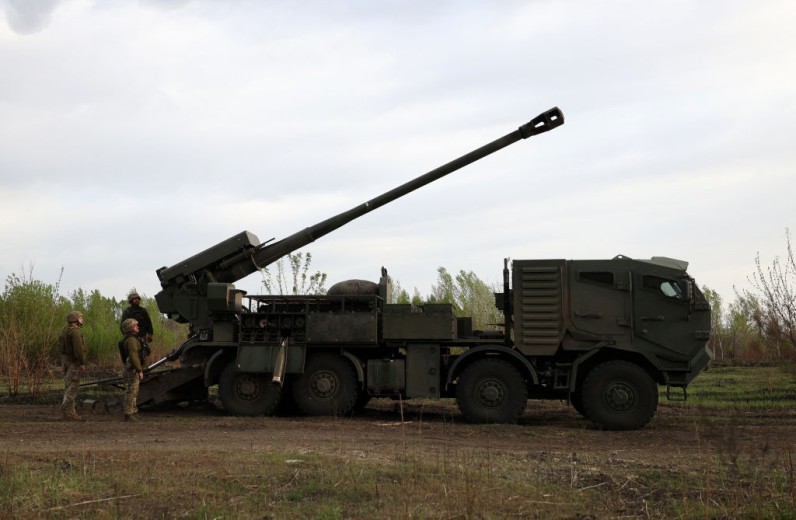President Joe Biden has signed a $95 billion national security package into law, which expedites critical assistance to Ukraine while also allocating funds to Israel and Taiwan following a lengthy dispute in Congress.
The aid package, pushed by Biden, seeks to strengthen Ukraine's defenses against Russian aggression (via Bloomberg).
Biden Fast Tracks Ukraine Defense Aid
Ukraine will receive an initial tranche of $1 billion in assistance, which includes air defense interceptors, artillery rounds, armored vehicles, and anti-tank weapons.
Biden emphasized the urgency of the aid, stating that shipments would begin within hours to help Kyiv repel Russian advances.
"I'm making sure the shipments start right away. In the next few hours - literally in a few hours," the president said.

US to Shell Out Aid to Israel, Taiwan
The package includes substantial allocations for other allies, including aid for Ukraine. Israel is set to receive $17 billion in military aid, strengthening the two countries' long-standing partnership.
Meanwhile, Taiwan is set to receive $8 billion to strengthen its defense capabilities and counter China's influence in the Asia-Pacific region.
The legislation also contains provisions that address broader national security concerns. These include measures to seize an estimated $5 billion in Russian assets in support of Ukraine and sanctions against Russia, Iran, and China.
Furthermore, the package includes a provision that requires Chinese company ByteDance to divest its popular social media app TikTok in the United States.
READ MORE : New Biden Administration Rule to Grant 4 Million Workers Overtime Pay; Here's What You Need to Know!
Bipartisan Support
The bipartisan support for the aid package reflects a consensus on the importance of American leadership in global affairs. Democratic Senate Majority Leader Chuck Schumer emphasized the legislation's importance, saying, "America sends a message to the entire world: we will not turn our back on you."
The aid package's approval comes after months of congressional gridlock and represents a renewed commitment to supporting key allies in the face of growing geopolitical challenges.







Join the Conversation